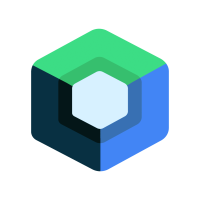
- Flutter AppBar
- Flutter Container widget
- Flutter Text widget
- RichText Flutter
- Row in Flutter
- Column in Flutter
- ListView in Flutter
- GridView in Flutter
- Stack in Flutter
- Expanded in Flutter
- SizedBox in Flutter
- Padding in Flutter
- Center in Flutter
- Align in Flutter
- FractionallySizedBox in Flutter
- AspectRatio in Flutter
- Baseline in Flutter
- TextField in Flutter
- Checkbox in Flutter
- Radio in Flutter
- Switch in Flutter
- Slider in Flutter
- DropdownButton in Flutter
- CupertinoPicker in Flutter
- ElevatedButton in Flutter
- TextButton in Flutter
- IconButton in Flutter
- GestureDetector in Flutter
- InkWell in Flutter
- PopupMenuButton in Flutter
- Image in Flutter
Column in Flutter
19-Sep-2024Learn how to arrange widgets vertically using the Column widget in Flutter
In Flutter, a column is a widget that displays its children in a vertical array.
Widgets can be arranged vertically and stacked.
Each child of a column can be any Flutter widget, allowing you to create complex layouts.
There Are Some Common Attributes for Column
| mainAxisAlignment | spaceAround, center, spaceBetween, spaceEvenly |
| crossAxisAlignment | center, stretch, start |
| mainAxisSize | max, min |
Column(
mainAxisAlignment: MainAxisAlignment.center,//you can use spaceAround,center,spaceBetween,spaceEvenly
crossAxisAlignment: CrossAxisAlignment.center,
children: [
// Widget Here
// Widget Here
// Widget Here
],
);
Here's a simple example of using a Column in Flutter:
File open lib->main.dart file −
import 'package:flutter/material.dart';
void main() {
runApp(
MaterialApp(
home: Scaffold(
appBar: AppBar(
title: Text('Column Example'),
),
body: MyApp(),
),
)
);
}
class MyApp extends StatelessWidget {
@override
Widget build(BuildContext context) {
return
Center(
child: Column(
mainAxisAlignment: MainAxisAlignment.center,//you can use spaceAround,center,spaceBetween,spaceEvenly
crossAxisAlignment: CrossAxisAlignment.center,//you can use center, stretch, start
children: [
Container(
height: 100,
width: 100,
color: Colors.blue,
alignment: Alignment.center,
child: Text("Text 1"),
),
Container(
height: 100,
width: 100,
color: Colors.red,
alignment: Alignment.center,
child: Text("Text 2"),
),
Container(
height: 100,
width: 100,
color: Colors.amber,
alignment: Alignment.center,
child: Text("Text 3"),
)
],
)
);
}
}
1/ Column is the main widget used to vertically arrange child elements.
2/ mainAxisAlignment is used to align the child along the main axis (in this case the vertical axis).
3/ crossAxisAlignment is used to align the child along the cross axis (in this case the horizontal axis).
The Children property is a list of widgets to display in the column.
Open
Device Manager, run the emulator, and then run the application. Next,
check the working output and check the output you declared in your
code.
Output:



